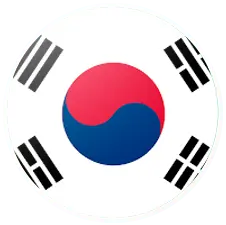Korean Lessons in Stonehaven
-
 Korean courses in-person or online
Korean courses in-person or online
-
 Learn at your home, office, or at the teacher’s premises
Learn at your home, office, or at the teacher’s premises
-
 Certified and native-speaking instructors
Certified and native-speaking instructors
-
 Lessons from £20 an hour
Lessons from £20 an hour


Choose the right type of course for you…
Select the type of course you need and schedule your lessons whenever you want, so you can always find time to study, regardless of your timetable or location.
- 1-on-1 General Korean Course in Stonehaven: Tailored specifically to your needs, our private general Korean courses in Stonehaven ensure rapid improvement in your language skills. Each course is uniquely designed around the student’s objectives and level, making learning Korean an engaging and personalised experience. So, whether you’re planning to relocate to a Korean-speaking country or you are looking for conversational Korean lessons, we specialise in crafting custom lessons to help you achieve your goals. For those who are not sure about their current language skills, then can complete our free Korean language tests and find out.
- 1-on-1 Business Korean Course in Stonehaven: Elevate your professional communication with our customised Business Korean courses in Stonehaven. Starting from any skill level, from Beginners Korean to more advanced levels, we focus on enhancing your ability to handle business interactions. Beginner learners, for example, will start with formal introductions and advance to more complex interactions, progressively gaining confidence in a business context.
- 2-to-1 and Small Group Korean Courses in Stonehaven (closed group): Our exclusive small group Korean courses are perfect for groups with shared language goals. Whether it’s a Two-to-One setup or an In-Company Small Group, we ensure a cohesive learning journey by matching participants with similar language levels, availability, and objectives.
Reviews of our Korean courses
My lessons are going really well. My Korean teacher has been great and I have nearly finished my 1st book.
My lessons are just fabulous! I am really enjoying what we've got going on! My teacher and I have also established a good relationship.
FAQs
Frequently Asked Questions
The best way to learn Korean is with a native teacher. Our native Korean teachers in Stonehaven can come to your home, office, or meet you in a public space for your convenience. We offer personalised Korean lessons designed to meet your current level, learning style, and interests. To accelerate your learning, you can also join Korean meet-up groups, attend Korean-themed festivals, and explore cultural events in Stonehaven.
Yes, there are affordable Korean classes in Stonehaven, especially with Language Trainers. We offer flexible payment options, and we provide discounts based on the number of hours you book—so the more hours you commit to, the lower the overall cost. We also provide small-group and open-group lessons, which are more affordable than one-to-one sessions, making it easier to find a course that fits your budget.
The best Korean lessons in Stonehaven are with Language Trainers. We offer flexible, personalised courses that fit your schedule and location, whether it's at your home, office, or online. Our native Korean teachers bring not only linguistic expertise but also cultural insights. We stand out with flexible payment options, exceptional customer service, and the peace of mind that comes from working with an established company known for its positive reviews.
You can find Korean lessons for beginners with Language Trainers. Our lesson plans are not fixed; we start with an assessment of your current level to create a customised plan, ensuring that no matter how much of a beginner you are, the course is tailored to suit your abilities and goals. Whether you're learning Korean for travel, business, or personal development, we can teach you anywhere across Stonehaven.
The best resources for learning Korean are those that create an immersive experience and provide practice opportunities. For example, we share curated Spotify playlists with Korean songs, which help improve listening skills and we offer free videos and learning tips on our YouTube channel to support ongoing learning. You can also engage in cultural activities around Stonehaven, like Korean-language film festivals, rock music events, and language exchange groups.



















